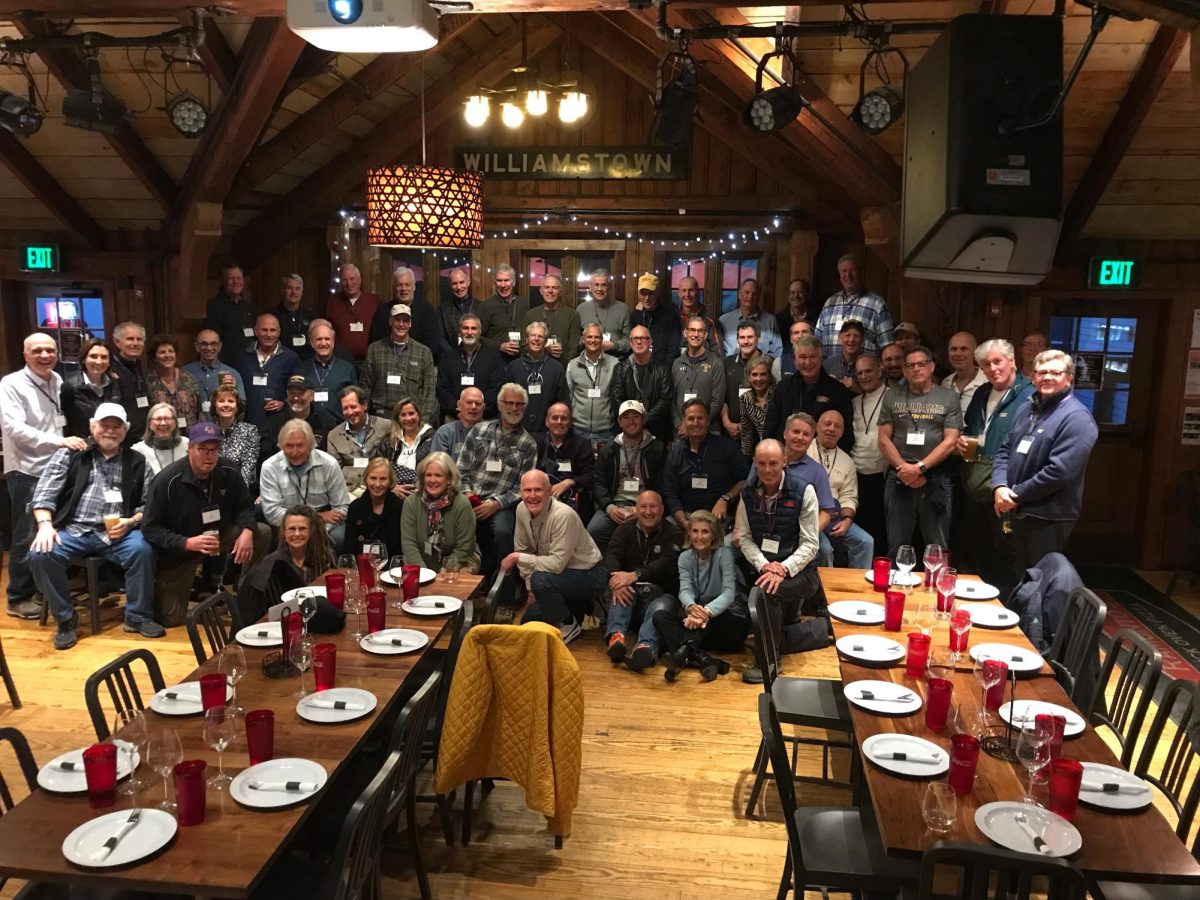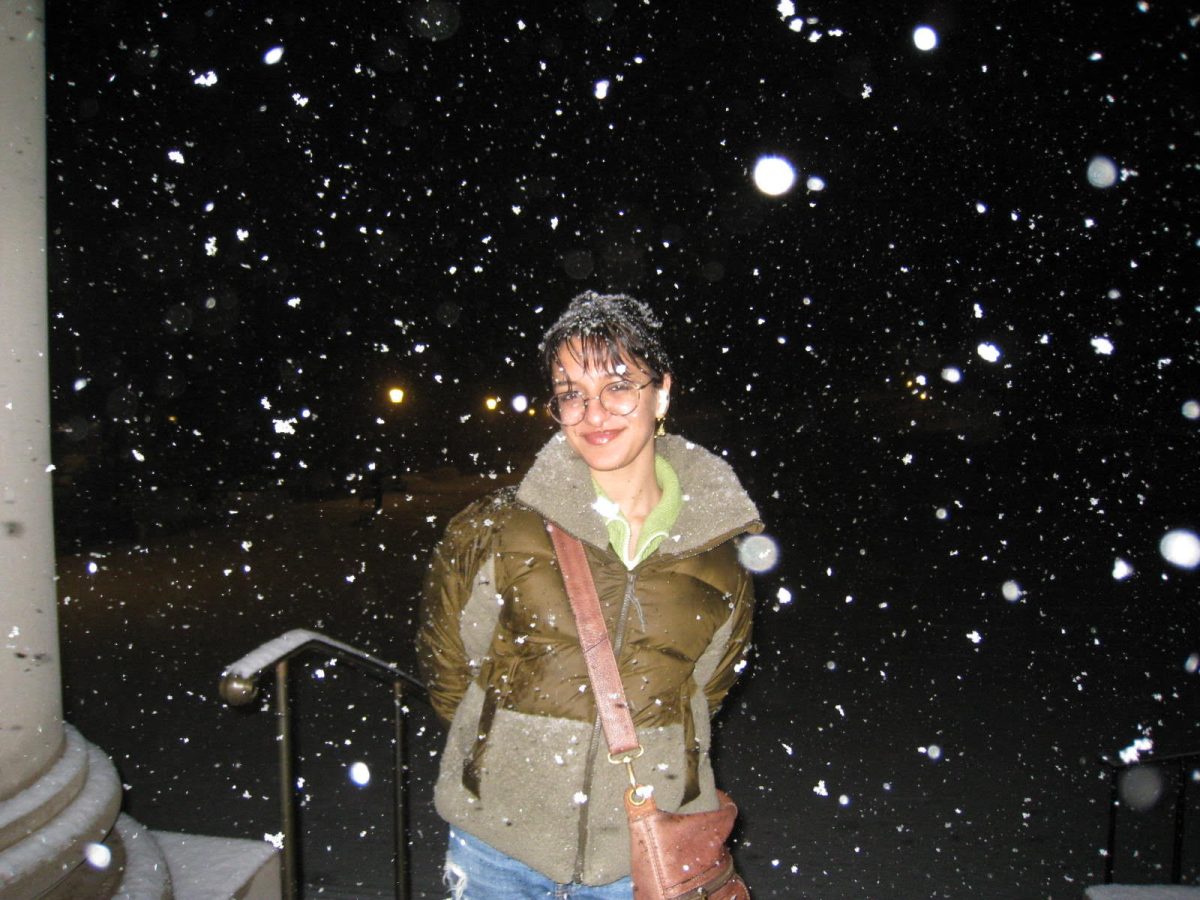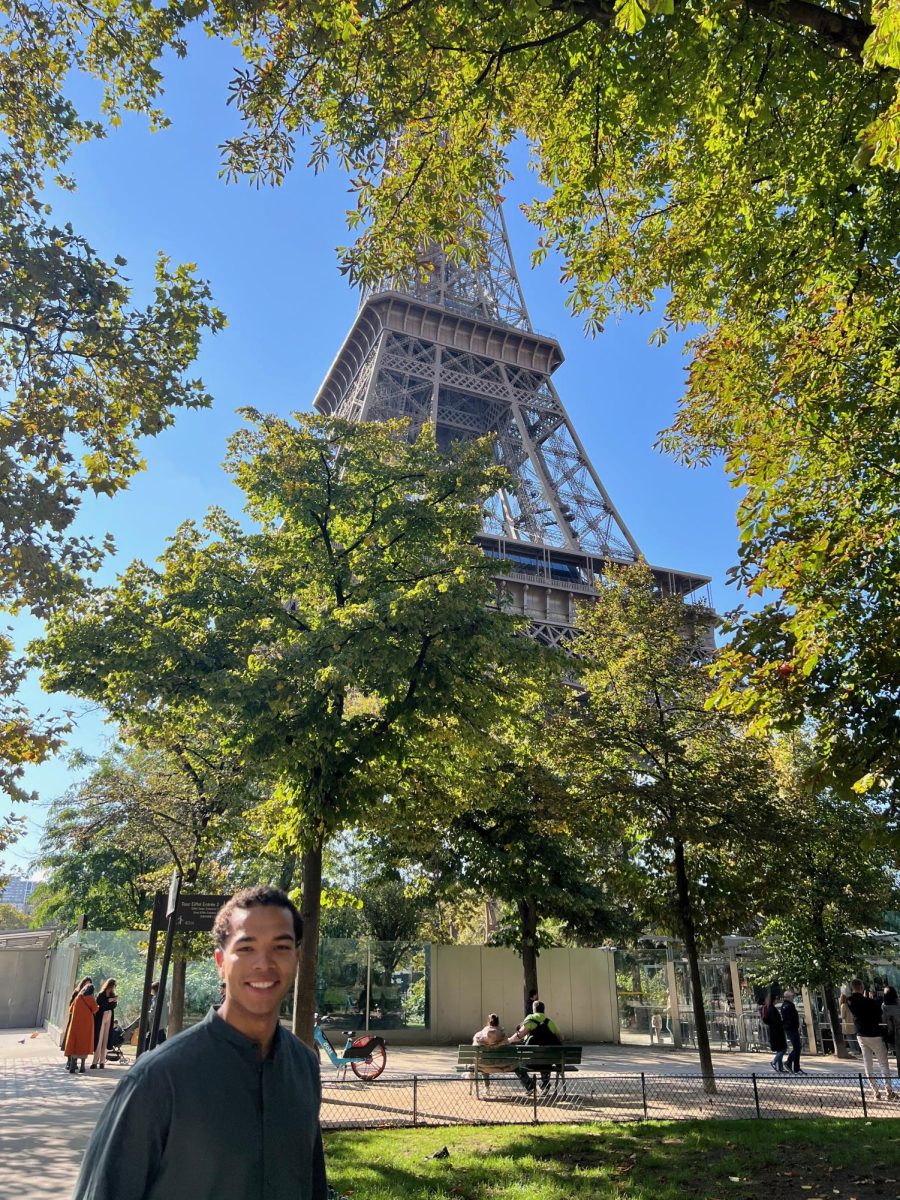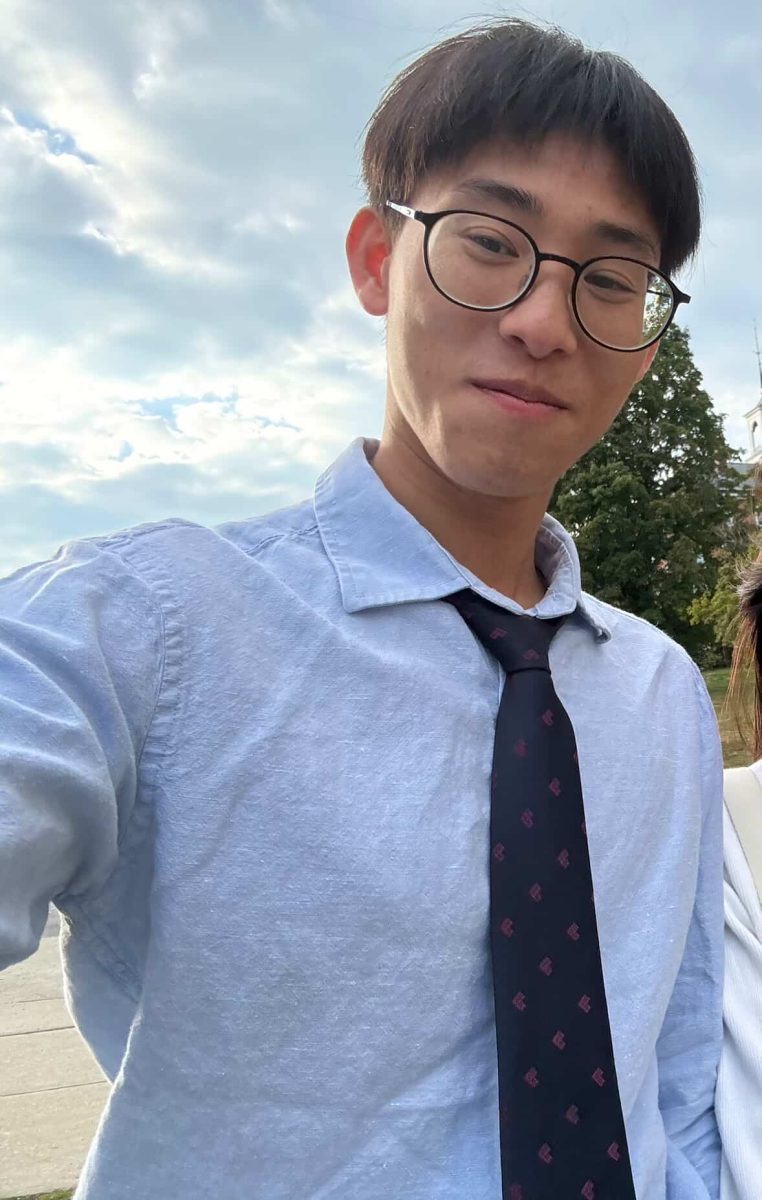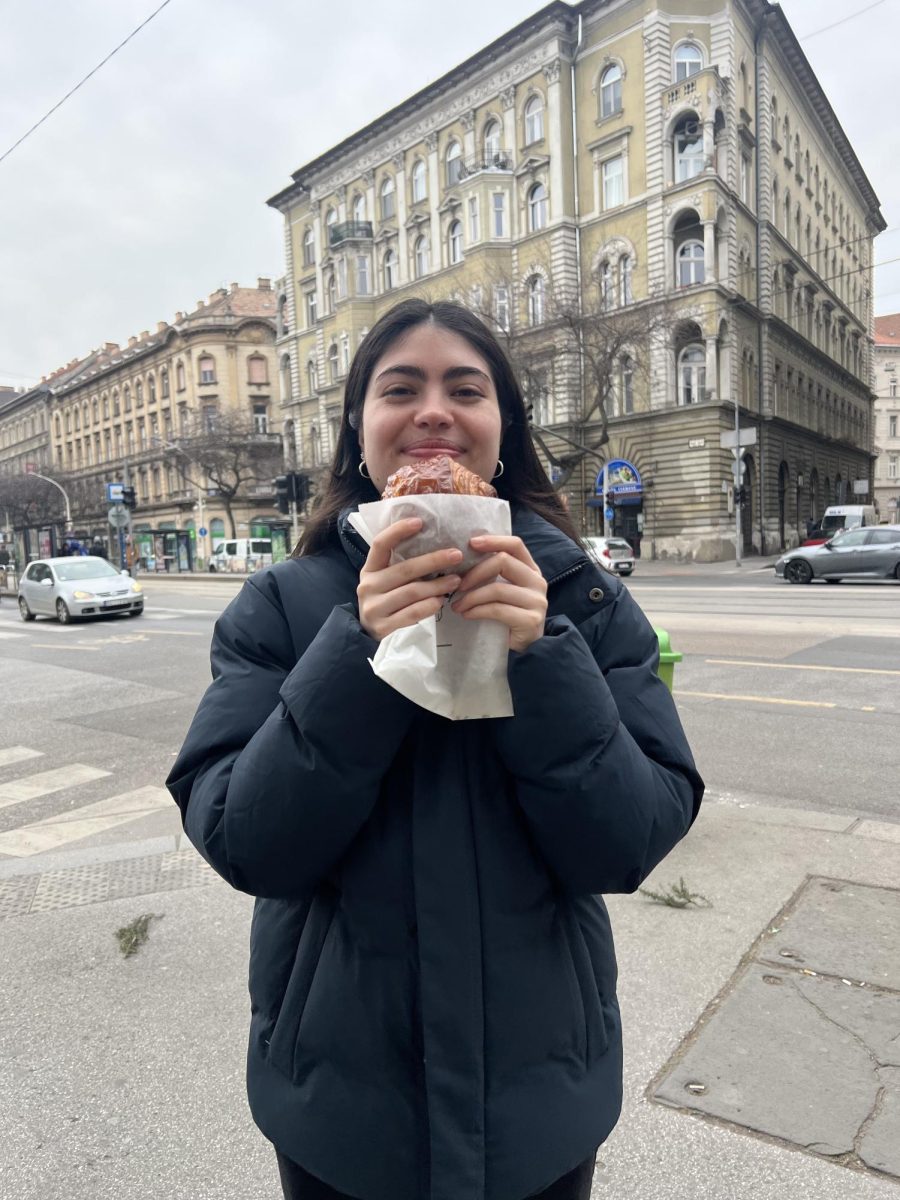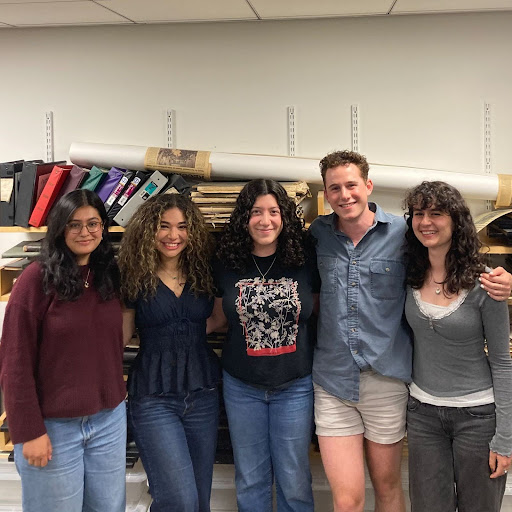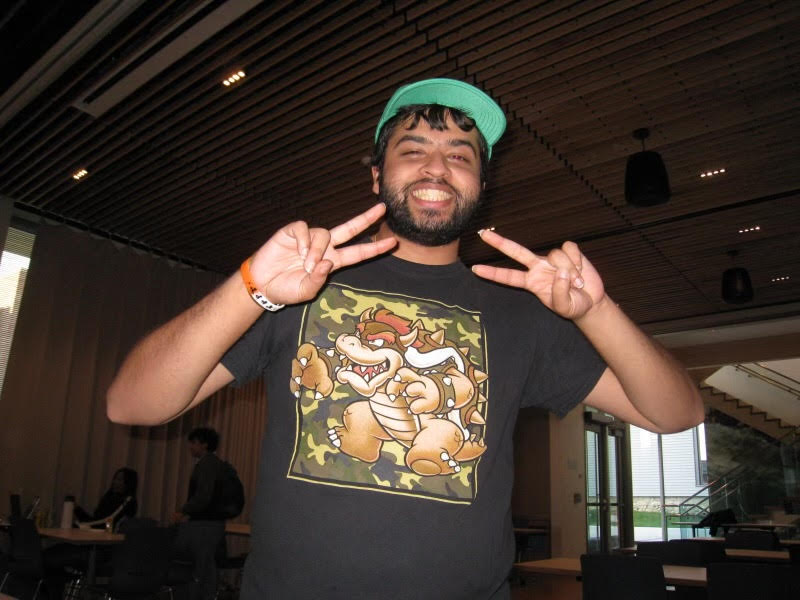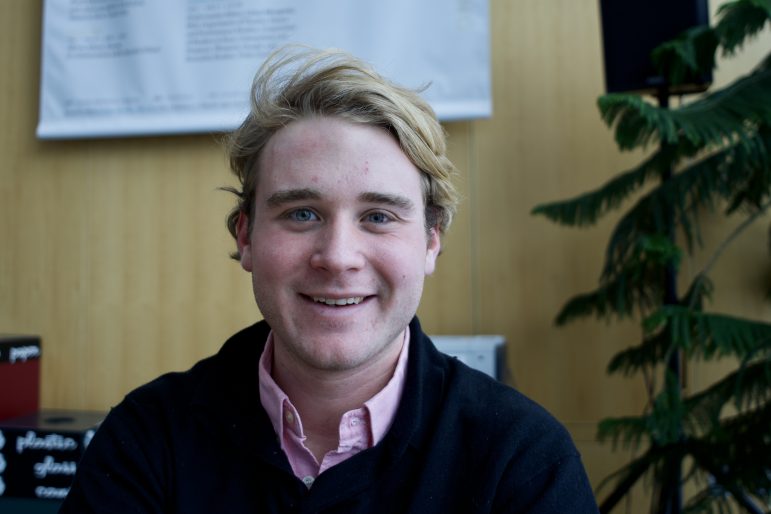
As a fellow member of the Octet, I have had the pleasure of spending at least six hours a week with Tom, if not many more. With his philosophizing about the relative merits of singing in two rows rather than one, he always makes my life more interesting. I sat down with him to talk about caring for his beloved late squirrel, teaching in the Bahamas and being a gay man at the College.
I first saw you during the Jamboree, where you performed “Jessie’s Girl.” And you’re a big Octet guy. So, tell me about the Octet.
So much of college – and particularly at Williams – is about personal achievement and being an individual and trying to set yourself apart in some way. Trying to succeed by yourself and often in spite of other people or instead of other people. I think that’s the way we’re implicitly taught to compete.
What I love about the Octet is that it decenters the importance of the individual a little bit, particularly for me because I don’t sing many solos. Our music director (and my quasi-father) Kenneth An [’20] makes sure of that. I get to spend my time in the background, supporting a group of people who I love. And I love the laughter.
I remember one of the first stories you told me when I joined was about the squirrel. Can you share with us Earl’s story?
So, the beginning of my junior year, we’d just finished Octet auditions for the day. We were walking back from Dodd to have dinner together. A few minutes later Mack Radin [’19] and Chris Washington [’18] walk over and say, “Oh my god! We saw the cutest thing, a little baby squirrel that fell out of a tree.”
So I left my food, which is rare for me to do, and ran as fast as I could to Parsons, and at the base of this big oak, there was a tiny squirrel cowering in the grass looking up at me with big eyes. Earl’s brother lay disemboweled next to him, and his mother was hanging dead from the branch of a tree above us. Probably a hawk attack. I scooped him up, nestled him in the crook of my bosom and ran back to my room, where I put him in a terrarium with my albino hedgehog, Lucius. It had a heating pad. I bought him baby formula and nuts from Walmart. The nuts turned out to be wishful thinking.
And we nursed him. Every morning for a week, I would wake up at 6 [a.m.] and heat up baby formula and feed it to him with a syringe. I fed him every eight hours. He was my little baby. And then one morning, I woke up to feed him – I was so happy, I’ve never been so happy as when I had Earl. I was whistling my favorite song, “Loch Lomond,” as I prepared his milk. I go to the little paper recycling bin that I was keeping him in to scoop him up and feed him. And he had rigor mortis. And he was dead. And I fell to my knees and wept. We buried him in the backyard of Susie Hopkins and made him a tombstone out of a loose brick, and we each tossed an acorn into his grave.
Soon after we buried him, a very large lawnmower took out his grave and launched his tombstone that we made out of a brick about 500 yards. He was very famous for a while. He was all over Snapchat – he was on the NESCAC Snapchat story.
Speaking of “Loch Lomond,” I’ve noticed you like Celtic folk music.
I like to sing Irish and Scottish folk music as I walk along. I love to sing while I’m walking.
You’re also a staple of the theatre community here at the College. What draws you to theatre?
Being gay has always attracted me to theater and performance. Especially when I was in the closet. There is something about enjoying – about not being afraid to pretend. Pretending for the sake of feeling fully present is fabulous and makes all of those moments of needing to pretend in life not so difficult.
Also, in the Williams theatre community, more than in any I’ve ever experienced, there is that sense of welcoming weirdness, welcoming queerness – of craving it, really. Needing that sort of community to live in. Silliness too. I love that. A shoutout to the great people of the IKEA lounge [in the ’62 Center for Theatre and Dance]!
Do you want to continue doing theatre after you graduate? And do you know what you are doing after college?
My rough plan is to move to New York City and try to make theatre in some way. I also love teaching – that’s what I do in the summers. I teach at a school in the Bahamas for high school students.
What do you teach? Why the Bahamas?
I teach at a semester program on the island of Eleuthera called The Island School. It focuses mostly on marine conservation and ecology. But I get to teach a humanities course about the history of colonialism and tourism and development in the Caribbean and the Bahamas in particular.
My grandparents live in the Bahamas, and I’ve spent large portions of my life there. It’s a country that I love and respect very much. And a history that’s so important for people to know – especially Americans, I think – to know how deeply the United States affects the lives of people in the Bahamas through the practice of tourism.
Maybe you’ll return one day to Williams to teach. Do you want to do that?
Not so much. Williams has been a gift in a lot of ways. But, I’m ready to be somewhere else.
You know, after I came out, and I told people I was going to Williams, they’d give me this look like I was headed for some kind of gay Shangri-La. And I arrived to the least – how would I describe this? It became very clear that the gay men of Williams lived a lot less like Oscar Wilde and a lot more like Emily Dickinson.
Thank you, Tom. Is there anything else you want to tell people?
I want to thank all the people I don’t know who have smiled hello to me on the walkways of Williams. Let’s grab a meal sometime.




